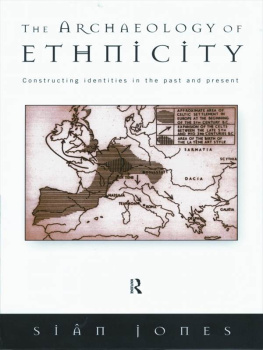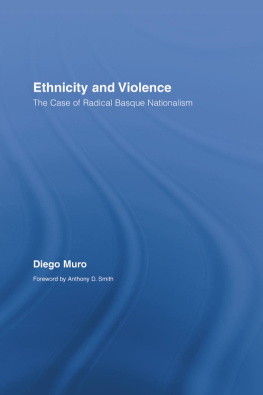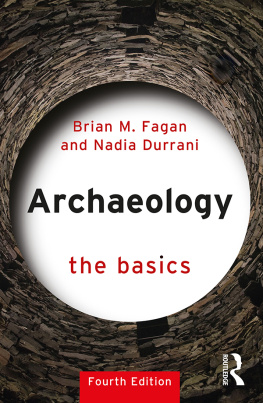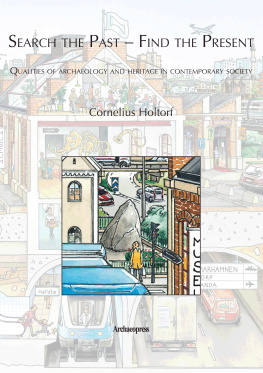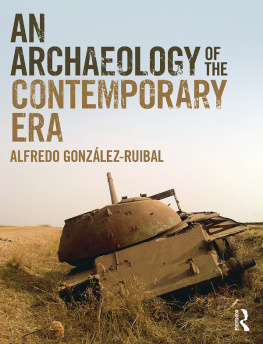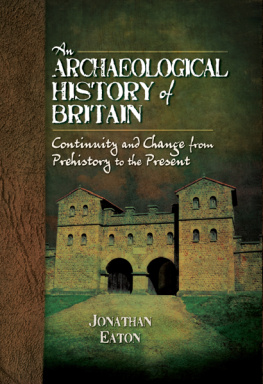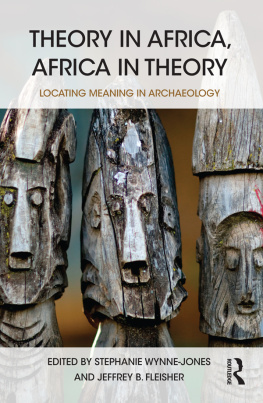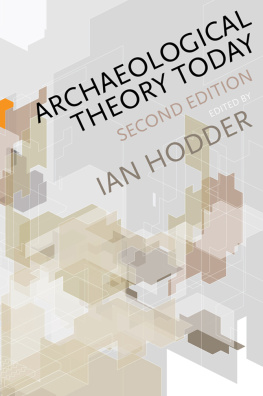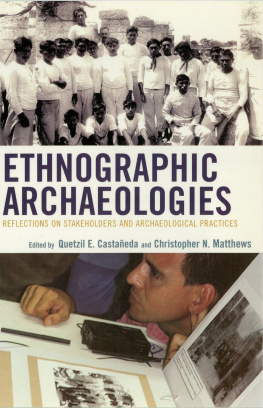The Archaeology of Ethnicity
The study of ethnicity is a highly controversial area in contemporary archaeology. The identification of 'cultures' from archaeological remains and their association with past ethnic groups is now seen by many as hopelessly inadequate. Yet such an approach continues to play a significant role in archaeological enquiry, and in the legitimation of modern ethnic and national claims.
Sin Jones responds to the need for a radical reassessment of the ways in which past cultural groups are reconstructed from archaeological evidence with a comprehensive and critical synthesis of recent theories of ethnicity in the human sciences. In doing so, she develops a new framework for the analysis of ethnicity in archaeology which takes into account the dynamic and situational nature of ethnic identification.
Opening up the important issues of ethnicity and identity, this book addresses important methodological, interpretive and political issues. It will provide invaluable reading for the student of archaeology and other disciplines in the human sciences.
Sin Jones is Parkes Fellow at the University of Southampton, where she is undertaking research on ethnicity in ancient Palestine. She is co-editor of Cultural Identity and Archaeology: The Construction of European Communities (Routledge, 1996).
The Archaeology of Ethnicity
Constructing identities in the past and present
Sin Jones

London and New York
First published 1997
by Routledge
11 New Fetter Lane, London EC4P 4EE
This edition published in the Taylor & Francis e-Library, 2003.
Simultaneously published in the USA and Canada
by Routledge
29 West 35th Street, New York, NY 10001
1997 Sin Jones
Quotation from Oranges Are Not the Only Fruit, Jeanette Winterson
All rights reserved. No part of this book may be reprinted or reproduced or utilized in any form or by any electronic, mechanical, or other means, now known or hereafter invented, including photocopying and recording, or in any information storage or retrieval system, without permission in writing from the publishers.
British Library Cataloguing in Publication Data
A catalogue record for this book is available from the British Library
Library of Congress Cataloging in Publication Data
Jones, S. (Sin), 1968
The archaeology of ethnicity: constructing identities in the past and present/Sin Jones.
p. cm.
Includes bibliographical references and index
1. Ethnoarchaeology. 2. Ethnicity. I. Title.
CC79.E85J66 1997
930.1'089dc20 9632658
CIP
ISBN 0-203-43873-6 Master e-book ISBN
ISBN 0-203-64421-2 (MP PDA Format)
ISBN 0-415-14157-5 (hbk)
ISBN 0-415-14158-3 (pbk)
Copyright 2002/2003 . All rights reserved.
Reader's Guide
This ebook has been optimized for PDA.
Tables may have been presented to accommodate this Device's Limitations.
Table content may have been removed due to this Device's Limitations.
Image presentation is limited by this Device's Screen resolution.
All possible language characters have been included within the Font handling ability of this Device.
For P.J.U.
and for my mother and father
Contents
Figures
Preface
This book is largely based on my doctoral thesis, which was undertaken at the University of Southampton and completed in 1994. Drawing on recent theories of ethnicity in the human sciences, the aim of my doctoral research was to provide a theoretical framework for the analysis of ethnicity in archaeology. Despite a few important pieces of existing work, there was very little interest in this topic when I started the project in 1989. Many archaeologists dismissed the study of ethnicity either as the epitome of a seemingly outmoded paradigm, culture-history, or as an impossible task which had politically dangerous connotations. Consequendy, on describing my research project I was often confronted with questions such as 'What has that got to do with archaeology today?' and 'Why are you doing that?' Fortunately, at the Department in Southampton I benefited from the foresight and perceptiveness of a number of individuals who made me realize the importance of the project at times when self-doubt and confusion might have made me abandon it altogether.
Half a decade later, ethnicity, along with nationalism, has become a very topical issue, both in archaeology and in society generally. Both ethnicity and nationalism are high on the agenda at archaeological conferences, and the literature focusing on the use of the past in the construction of contemporary identities is expanding exponentially. However, archaeologists have largely focused on the politics of identity in the present, frequently lapsing into more general discussions on the politics of archaeological enquiry, without taking the logical step of reconsidering the interpretation of identity groups in archaeology. In the absence of such a re-evaluation providing us with a stronger basis for the interpretation of past ethnic groups it is very difficult for us to engage successfully with the ways in which contemporary groups, national, ethnic, indigenous or otherwise, use archaeology in the construction and legitimation of their own identities. I hope that this book will contribute to the development of new approaches to the interpretation of past identities, and new perspectives on the use of the past in the construction of group identities today. With this in mind, I have written a new introductory chapter and expanded the conclusion of my Ph.D. thesis in order to highlight the need to consider simultaneously the construction of identities in the past and in the present.
This book has been a long time in the making and I am grateful to a considerable number of people for their advice and support during work on my thesis and subsequent revision for publication. I wish to acknowledge the Isle of Man Board of Education for providing funding for my Ph.D., and the Sir Robert Menzies Centre for Australian Studies for a scholarship which enabled me to go to Australia in 1990 to examine the construction of Aboriginal identity. During my time there Ian and Libby Keen, Gordon Briscoe, Iris Clayton, Jacquie Lambert and many others were a source of insight and advice. I am grateful for their help during a period which was formative in the development of the ideas presented here, and it is with much regret that a substantive discussion of the construction of Aboriginality eventually had to be left out of my Ph.D. thesis and this book.
Thanks to Tim Champion, Clive Gamble, Paul Graves-Brown, Claire Jowitt, Kris Lockyear, Brian Molynenx, Tim Sly, Dave Wheatley, Francis Wenban-Smith, and many other staff and postgraduates at the Department of Archaeology, University of Southampton and elsewhere, whom I consulted in the course of my doctoral research. They provided a stimulating and friendly environment in which to study, and the comparative and theoretically informed nature of archaeology at Southampton has influenced my work immeasurably. I would especially like to thank Stephen Shennan who has been particularly long-suffering over the years, providing invaluable commentary on endless drafts of my work.
In revising my thesis for publication Ben Alberti, Cressida Fforde, Antony Firth, Pedro Funari, Martin Hall, Richard Hingley, Quentin Mackie, Ingereth Macfarlene, Maggie Ronayne, Mike Rowlands and Jane Webster have also given their time to discuss problems and ideas. I am grateful for their input and their constructive criticisms. My ideas were also further developed whilst teaching a postgraduate course at the University of La Plata in Argentina and MA courses at the University of Southampton on the topics of ethnicity and nationalism. Thanks to all the students for their enthusiasm and, at times, challenging scepticism. I also wish to thank my colleagues at the Parkes Centre for the Study of Jewish/non-Jewish Relations, Tony Kushner and Sarah Pearce, for providing me with the space to work on this book despite the demands of other projects.
Next page
